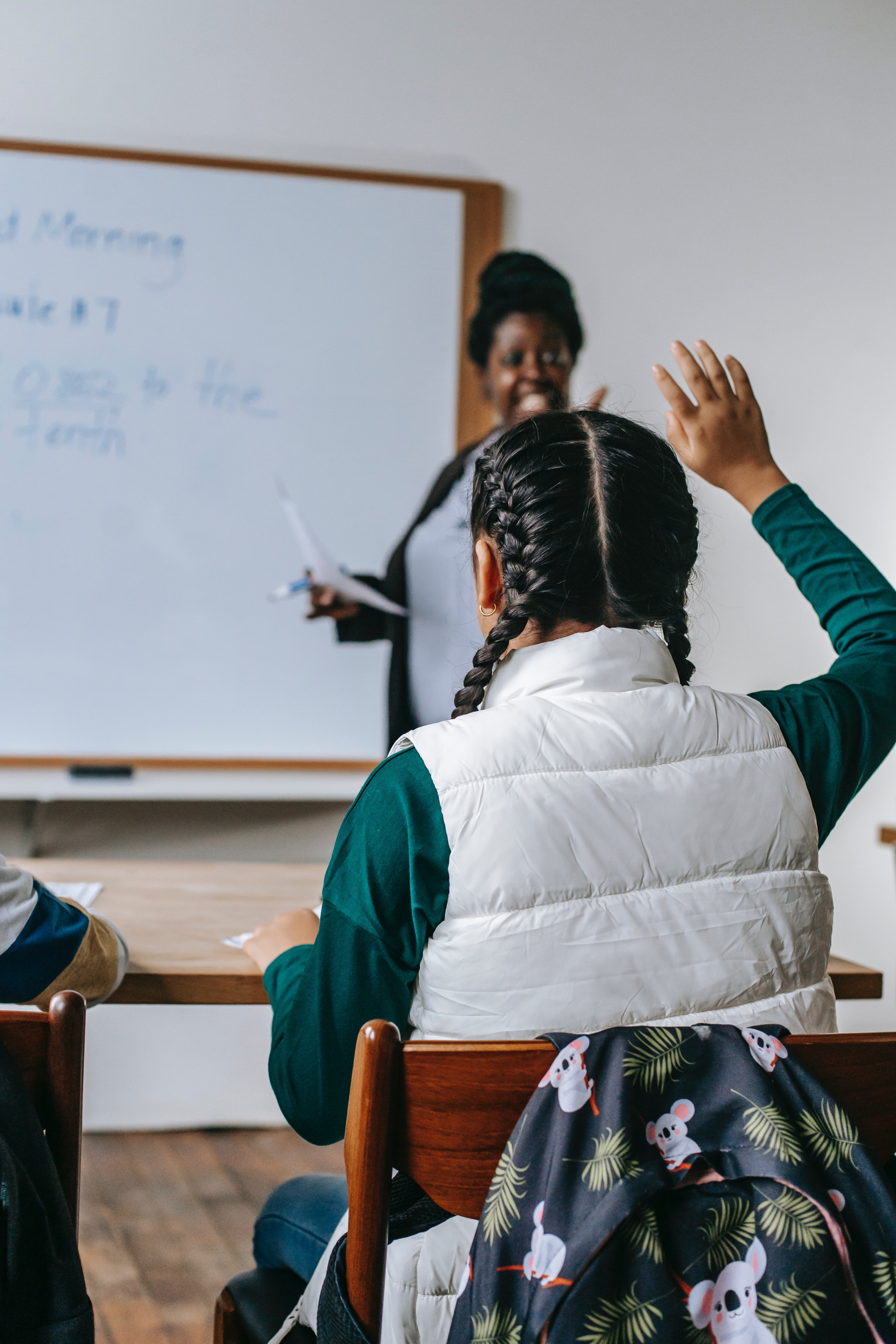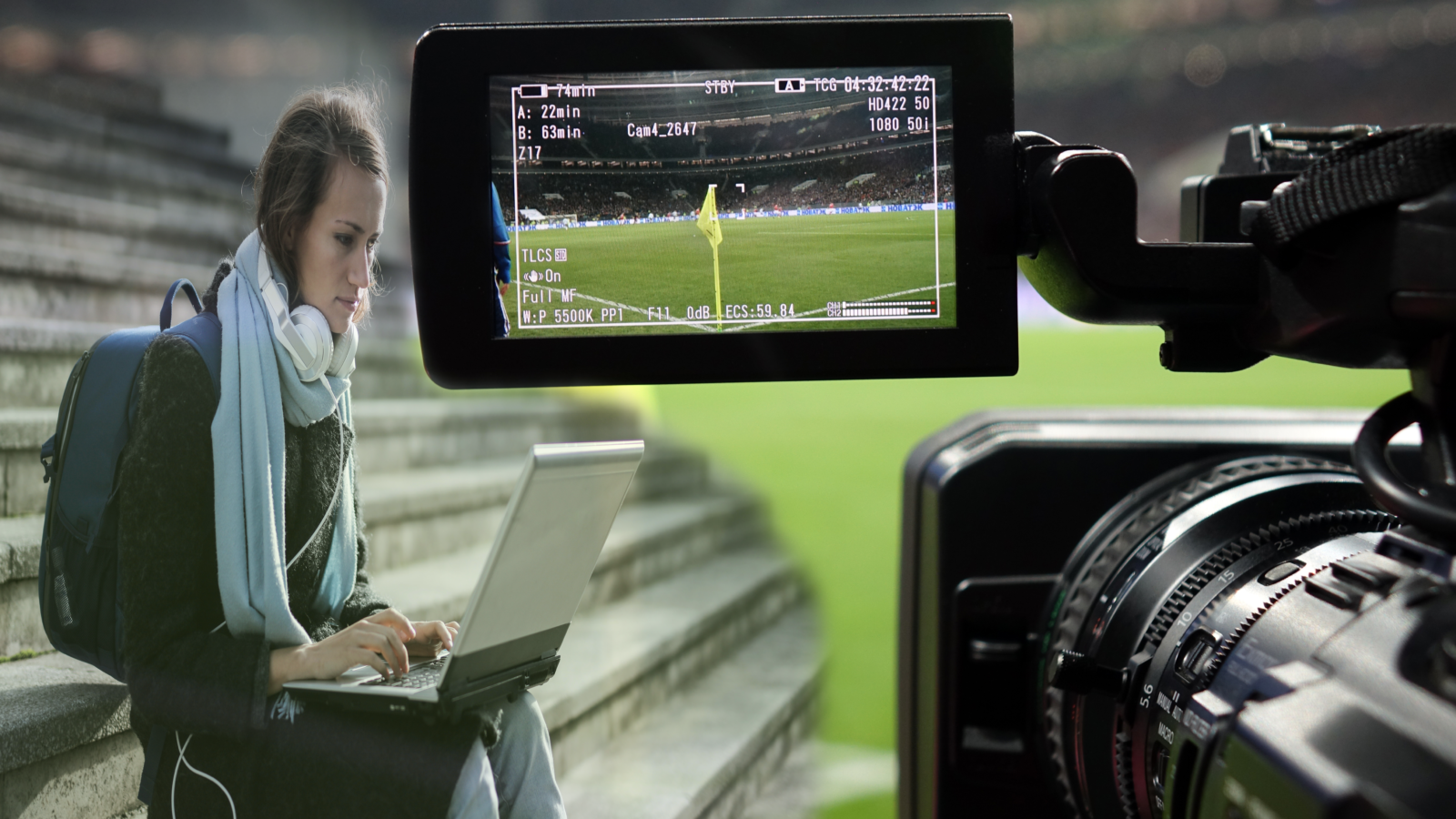This article is part of an ongoing series that explores how career advice from different sectors and companies can be highly relevant to education. Today, I want to focus on what we as educators can learn from athletes.
Athletes utilize a variety of techniques to improve their game from self-reflection to using music to keep them inspired and motivated. So what lessons can educators learn from athletes?
The power of reflection
“I’m reflective only in the sense that I learn to move forward. I reflect with a purpose.”
–Kobe Bryant
Professional sports athletes have long embraced the concept of watching video back for reflection. Indeed, all NFL, NHL, NBA, MLB, Soccer, even Golf players, watch endless tape. They do it to break down their last game and learn what they could have done better. They also do it to learn new plays and to prepare against competitors in an upcoming game.
Why have we not adopted this same strategy in schools? The experience of doing something versus the experience of watching yourself do something is usually shockingly different. The self-awareness that it develops is priceless. And the more we do it, the closer we align the two experiences. Thus would be particularly helpful in the performing arts, physical education and public speaking for the instant feedback it provides, but it actually goes deeper than that and could be equally effective in science, English, and math. Why? According to Professor Stanislav Dehaene, learning requires the following four things: attention, curiosity, feedback and consolidation. And I would argue that creating a video presentation of a science experiment or the like and watching it back with your class would make you feel something. It would likely grab your attention, and since the performance would likely not match your self perception accurately, your curiosity would be heightened, the reflection would also provide you with quick feedback both from yourself and your teacher and peers and if the process of practice, record, reflect was common practice, the repetition could consolidate the learning.
But there is a method to the successful watching of film:
- Great coaches identify patterns of play. Detecting patterns is an important part of how humans learn and make decisions. Educators use patterns to teach every subject, including math, science, technology, engineering, reading, writing, and music. By being purposeful and pointing out those patterns, we strengthen students’ ability to run probability theories. Our brain is constantly finessing probability models.
- Great coaches will correct on both an individual as well as a group basis, but will avoid yelling at one particular player, for that rarely helps. They also recognize that it is just as important to watch the team playing well, as it is to watch for what could be improved. It fuels the power of self belief, which is vital to winning.
- Great teams will also be sure to encourage positive feedback to each other. Having a teammate give a compliment for a solid play that helps the team, even if it doesn’t make the highlight reel, is a huge motivator.
- Use reflection regularly, building it into the process.
- Use reflection only for the next practice not for the game! In order to avoid the issue of ”Paralysis from analysis” we must focus on using the reflection only for the next practice. With practice you build muscle memory. But once it’s game-time you have to get out of your head. That is the time to trust in your process and not let the analysis get in the way! Same with education, particularly for the performing arts! We should be using reflection to guide the practice of a new skill. We can rinse and repeat the practice, record, reflect cycle as much as we like, but when it comes time to perform, our students need to trust in the process and simply stay in the moment.

Adopting a growth mindset
“I’ve failed over and over again in my life. And that is why I succeed.” – Michael Jordan
“There may be people that have more talent than you, but there’s no excuse for anyone to work harder than you do.” – Derek Jeter
In order to be the best, you have to be able to fail. A growth mindset taps into the power of self belief that we can get better at anything with practice. One of the greatest examples of this is a baby learning to walk. They fall hundreds of times, before finally taking their first steps. Each fall allows for a new learning experience. And this mindset in turn develops grit, the courage and resolve to never give up.
The growth mindset is certainly present in many schools today, but it could be harnessed in a much greater way if it was implemented systematically.
Focus on the mind as well as the body
Elite athletes like Peyton Manning understood that the mental aspect of the game was just as important as the physical one! Elite athletes must hone their self regulation and impulse control as much as they hone their physical skills.
The same benefits could be seen in schools (and in life). Self awareness, self management, relationship skills, social awareness and responsible decision making are all vital for a successful education. Research has demonstrated the significant role of SEL in promoting healthy student development and academic achievement.
Leveraging emotion in music
“My love for music is insane!” –-Lebron James
Many athletes are known to use the power of music before a game or competition. Athletes turn to music to regulate their emotions and to find the right mental zone. Upbeat music helps motivate and also engages and pumps up the audience, while slower music can help relax and calm any nerves. So how do we utilize the same tools to shift the way we feel in the classroom?
Playing music as kids enter the classroom welcomes them and reduces stress and anxiety, making them feel like they belong there. It is also a great tool to engage them and open the door to learning! Ask students to select a theme song for each week that reflects their mood or to create a playlist that inspires them just like professional athletes like Lebron James do before a game.
Practice, Practice, Practice
“Luck has nothing to do with it, I have spent many, many hours, countless hours, on the court working for my one moment in time, not knowing when it would come.”–Serena Williams
“My secret is practice.” —David Beckham
Athletes don’t come to a competition unprepared, they know the more preparation they have, the better they will perform. It’s about repetition. Or as Professor Stanislav Dehaene would say it allows for consolidation. And it applies to education too. From learning a new language or how to play a new song to preparing for a weekly spelling test, practice not only ensures you will do well, but it also builds confidence.
Teamwork
“One man can be a crucial ingredient on a team, but one man cannot make a team”
-Kareem Abdul-Jabbar
Like all organizations, sports teams are comprised of completely different personalities, yet they have to work together to succeed. Teamwork is essential, but why is it important in a classroom? It’s not just about fostering peer to peer learning it is about creating an environment where students feel comfortable to learn. To stay active and participate.
So how do we develop teamwork on the field and in the classroom?
Music is one way to foster teamwork and serves as a gateway to learning. For example, ask students to collaborate in small groups, to play in a band or write and present a song to their classmates. The exercise will unite them by encouraging interaction and helping deepen connections. They’ll have to work together, which will enhance their communication, collaboration, and sense of community.
Hopefully some of the suggestions in these articles have been interesting and will be utilized in classrooms. Trying something new can be difficult, but in my opinion, totally worth it. As Wayne Gretzky would say “You miss 100 percent of the shots you don’t take.”


